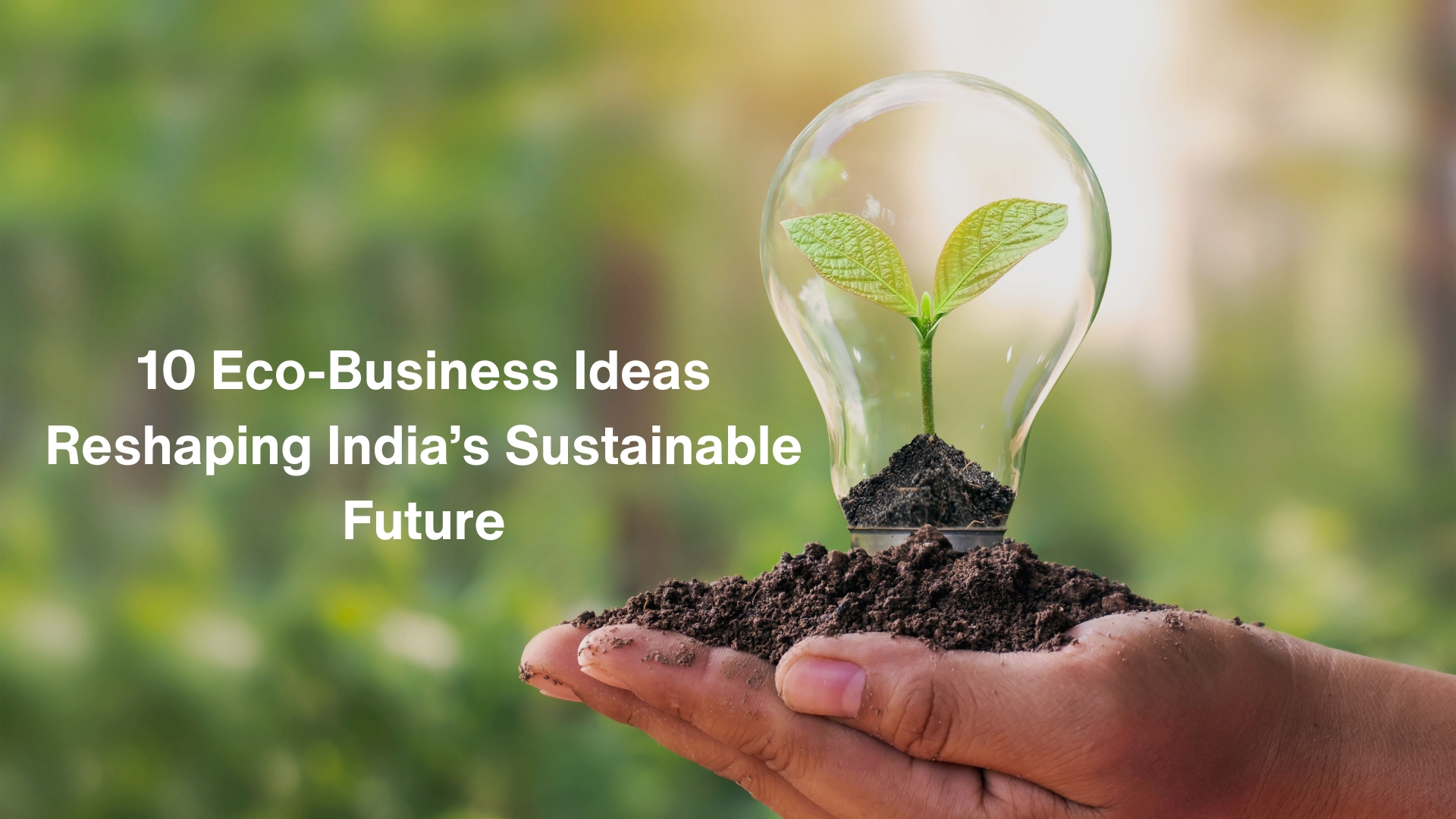India is confronting an environmental crisis of unprecedented scale and severity. With over 62 million tonnes of waste produced annually, escalating pollution levels, and rapidly depleting natural resources, the country’s ecosystems—and its people—are under dire threat. Cities like Delhi and Mumbai frequently rank among the world’s most polluted, while rivers once revered for their sanctity now run choked with untreated sewage and industrial effluents. Agricultural stubble burning blankets northern India in toxic smog every winter, textile waste floods landfills, and mountains of plastic refuse devastate marine life.
This mounting ecological emergency is no longer a distant concern; it is a present reality that imperils public health, food security, and economic stability. The consequences are profound: increased respiratory illnesses, climate extremes disrupting agriculture, and communities displaced by environmental degradation.
Yet, amid these daunting challenges, a resilient cohort of Indian entrepreneurs is redefining the country’s future. Through innovation, perseverance, and commitment, these pioneers are transforming waste streams into wealth and laying the foundation for a circular economy—where nothing is discarded, and everything has value.
The following are 10 trailblazing eco-businesses in India that exemplify this transformative spirit, turning environmental liability into opportunity and charting a course toward sustainability.
1. Daily Dump – Composting Urban Organic Waste (Bengaluru)
In India, over half of all urban waste is organic, yet most of it is dumped in landfills where it decomposes anaerobically, releasing methane—a greenhouse gas 25 times more potent than carbon dioxide. Daily Dump is combating this through home-grown composting solutions.
Founded in Bengaluru, Daily Dump offers decentralized composting units for homes, apartments, and institutions, enabling users to transform their kitchen and garden waste into nutrient-rich compost.
Environmental Impact:
- Reduces landfill waste and methane emissions.
- Enriches soil and supports local food systems.
- Cuts down municipal waste processing costs.
2. Banyan Nation – Smart Plastic Recycling (Hyderabad)
Plastic pollution is among India’s most pressing challenges, with over 3.4 million tonnes of plastic waste generated each year. Much of it is low-quality post-consumer plastic that ends up in waterways or is burned in landfills.
Banyan Nation uses proprietary technology to clean and reprocess this plastic into “Better Plastic”, which is used in packaging and automotive components.
Environmental Impact:
- Diverts plastic from oceans and landfills.
- Supports a circular plastic economy.
- Partners with global brands like Unilever and Tata Motors to scale sustainable packaging.
3. Attero Recycling – Closing the E-Waste Loop (Noida)
India is the third-largest e-waste generator in the world, yet over 90% of it is handled by the unorganized sector, causing significant environmental and health hazards.
Attero Recycling, based in Noida, is a trailblazer in safe and efficient e-waste recycling. It uses in-house technology to extract precious metals like gold, copper, and cobalt from discarded electronics.
Environmental Impact:
- Reduces soil and water contamination from toxic metals.
- Promotes urban mining over destructive raw material extraction.
- Prevents informal e-waste handling and health risks.
4. Doodlage – Fashion from Fabric Waste (New Delhi)
The fashion industry is notorious for excessive water consumption and textile waste, much of which is non-biodegradable and ends up in landfills or incinerators.
Doodlage upcycles discarded textiles, factory surplus, and fabric scraps into high-fashion, limited-edition clothing and accessories.
Environmental Impact:
- Diverts fabric waste from landfills.
- Reduces demand for virgin textile production.
- Encourages conscious consumerism and slow fashion.
5. Ricron Panels – Plastic Waste into Building Materials (Gujarat)
Multi-layered plastic packaging (like chips packets and sachets) is virtually impossible to recycle through traditional methods. Ricron Panels has developed a patented process to convert this into durable construction panels.
These eco-panels are now being used in interiors, doors, furniture, and more.
Environmental Impact:
- Recycles otherwise unrecyclable plastic waste.
- Replaces wood-based products, reducing deforestation.
- Offers affordable, long-lasting alternatives in construction.
6. GreenJams – Carbon-Negative Building Blocks (Hyderabad)
Stubble burning in North India is a major contributor to winter smog, releasing vast amounts of PM2.5 particles and greenhouse gases. Meanwhile, cement manufacturing is responsible for nearly 8% of global CO₂ emissions.
GreenJams tackles both issues with Agrocrete®, a carbon-negative building material made from crop residue and industrial by-products.
Environmental Impact:
- Reduces open-air burning of agricultural waste.
- Decreases cement dependency in construction.
- Cuts down CO₂ emissions in the building sector.
7. Karma Recycling – Extending the Life of Electronics (Pan-India)
Indians discard millions of still-functional electronic gadgets each year due to planned obsolescence and social trends. Karma Recycling refurbishes old smartphones, laptops, and gadgets for resale.
Environmental Impact:
- Reduces e-waste volumes.
- Saves energy and resources used in manufacturing new devices.
- Provides affordable gadgets to underserved markets.
8. Ecoware – Biodegradable Tableware (Noida)
India’s consumption of single-use plastic cutlery and containers has created an unsustainable plastic waste crisis. Ecoware addresses this by producing 100% compostable tableware made from sugarcane bagasse.
Environmental Impact:
- Decomposes in 90 days, unlike plastic which takes centuries.
- Adds value to agricultural by-products.
- Offers a safe, eco-friendly solution for foodservice businesses.
9. ReMaterials – Affordable, Solar-Ready Roofing (Ahmedabad)
Many low-income homes in India use asbestos or tin roofing, which poses severe health risks and poor insulation. ReMaterials creates eco-friendly roofing sheets from recycled cardboard and paper waste.
These roofs can also be integrated with solar panels, combining sustainable construction with clean energy access.
Environmental Impact:
- Repurposes paper waste into safe construction materials.
- Improves energy efficiency and living conditions.
- Makes solar adoption easier and more affordable.
10. PadCare Labs – Menstrual Waste Management (Pune)
India generates over 12 billion used sanitary pads each year, most of which are plastic-based and non-biodegradable. PadCare Labs has created the world’s first sanitary pad recycling system using patented technology to safely extract cellulose and plastic from used products.
Environmental Impact:
- Prevents hazardous waste from reaching landfills.
- Supports menstrual hygiene management in schools and offices.
- Normalizes and dignifies menstrual waste discussions.
Conclusion: Towards a Sustainable Tomorrow
India’s environmental challenges are urgent and multifaceted, but the solutions are within reach. The success of these 10 eco-businesses proves that sustainable development is not a choice between growth and conservation—it is a powerful synergy of both.
Scaling this green revolution requires concerted effort: proactive policies, consumer consciousness, corporate responsibility, and a collective shift in mindset that sees waste as a resource, not refuse.
With innovators leading the charge, a cleaner, healthier, and more prosperous nation is not just an aspiration—it is becoming reality.












